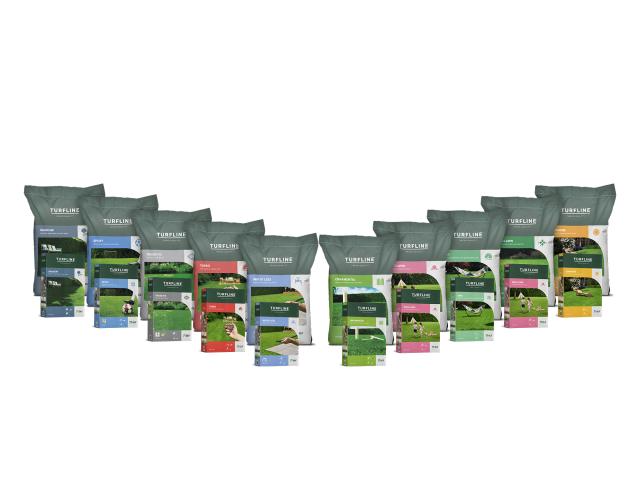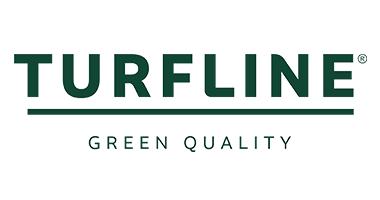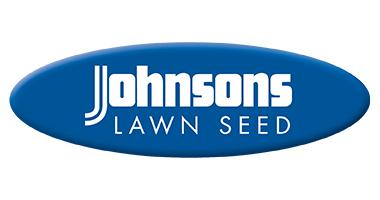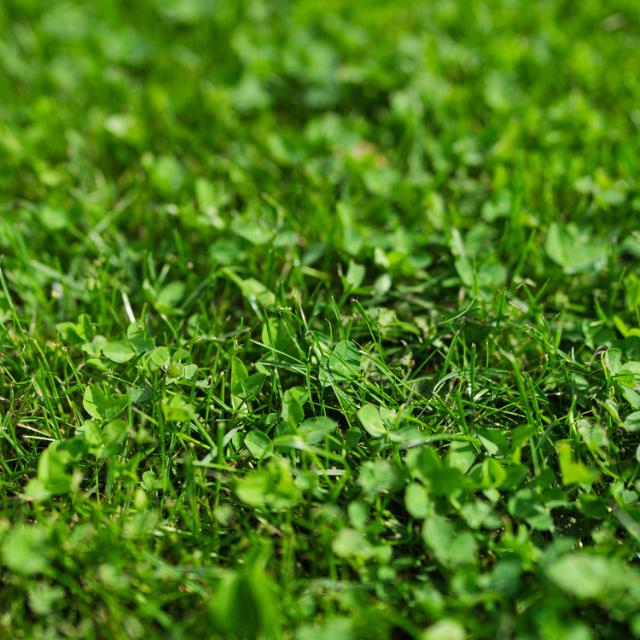
Microclover® - a breakthrough in sustainable lawn care
Imagine a sustainable lawn that stays dark green most of the year - even during dry spells. With Microclover® seed a green lawn can be a reality all year round – and even with minimum effort. As one of the few plant species clover is producing its own nitrogen fertiliser that ensures to feed the lawn with the needed level of fertiliser so that it stays green, which also saves money.
About Microclover®
Microclover® is a very tiny white clover. The unique small leaved clover is developed specifically for use together with turf grasses and has a special ability to grow in between the grass plants, keep an even distribution over the turf and supply the grass with the nitrogen needed. Furthermore, it keeps the turf dense and thereby it decreases the amount of weeds and the amount of work you need to put into it.
Microclover® is a leguminous species. Legumes can fix nitrogen from the air which eliminates the need for artificial fertiliser. This N-fixation takes place in the root nodules formed by the symbiotic Rhizobium bacteria. The continuous process of roots dying and degenerating means the accumulated nitrogen is available to the surrounding grass plants. This is truly a sustainable solution.
Microclover® is a plant that produces stolons so that it can spread itself evenly in the turf. This means it is good for closing bare spots quickly, which ultimately reduces the chance that weeds can be established and therefore you do not need to spend so much time on weed control. Additionally, the stolons allow it to regenerate itself after severe stress giving you a green turf faster.
Microclover® is adapted to a wide range of climatic and soil conditions tolerating wet and shade conditions, as well as drought. However, it can only tolerate wet conditions as long as the area is not flooded for long periods.
Green lawns with less work
Resilient lawn solutions for a green and healthy lawn
The great variety of mixture in the Turfline® range covers every possible need for a lawn. Whether the need is for a drought and heat tolerant mixture, a mixture that beats the weeds or a mixture that has increase disease tolerance, the Turfline® range has the solution.
Microclover® appearance over the growing season. Plots indicated with blue contain Microclover®.
.jpg&width=640&format=webp&quality=99)
How to manage Microclover®
To maintain Microclover® at the desired level below 50% in the sward, some nitrogen could be applied in spring and early summer. The nitrogen will favor the growth of the grasses. Depending on the growing conditions and level of wear, 0 - 100 kg N/ha is needed; around 40 kg N/ha should normally be sufficient. Summer and autumn applications will not be necessary.
Fertiliser application is most important in the year of establishment.
As Microclover® doesn’t fix P, K or Mg from the atmosphere, these elements have to be applied as usual.
What do customers say about Microclover®?
Landscape gardeners, Mette and Lars Krog have recently set up business as, Krog’s Havekompagni in Kirke Hyllinge on Sealand in Denmark. They already have seven employees and operate throughout all of Sealand. Their clientele is mainly made up of private gardens, but the company also undertakes construction work for business clients.
“We recommend that our customers use turf with Microclover®, because their lawn will be much more attractive, greener, and denser. Our clients will find the lawn much easier to look after as it will need less irrigation and fertilizer compared to ordinary lawns without Microclover®”.
Reduce the environmental impact with Microclover®
Our breeding and product development, has through more than 30 years, aimed to develop, and breed more sustainable varieties adapted to local climatic conditions. We offer Microclover® that are optimized to maximize performance and minimize resource input, by increasing resilience to changing climate conditions and disease pressure. This solution can reduce the impact on the climate and environment. With Microclover®, maintenance becomes easier and more sustainable as it requires less input in terms of fertilisers, water and plant protection products.
The UN has identified 17 sustainable development goals (SDGs) to achieve a better and more sustainable future for all in 2030. Turf solutions with Microclover® can contribute to meet some of the UN SDGs because Microclover® needs fewer resources. By choosing Microclover® from us, your business can help meet the UN SDG no. 6 (clean water), no. 13 (climate action) and no. 15 (life on land).
UN goal and Microclover®
Our Microclover® not only ease the work of growing beautiful and resilient lawns. They also help reduce the impact on the environment.
- Less need for water – less irrigation – less pressure on water resources – help meet UN goal 6
- Less fertiliser - less maintenance operations – less CO2 emission – help meet UN goal 13
- Less fertiliser - less risk of leaching – help meet UN goal 15
- Less weed – less need for herbicides – help meet UN goal 15
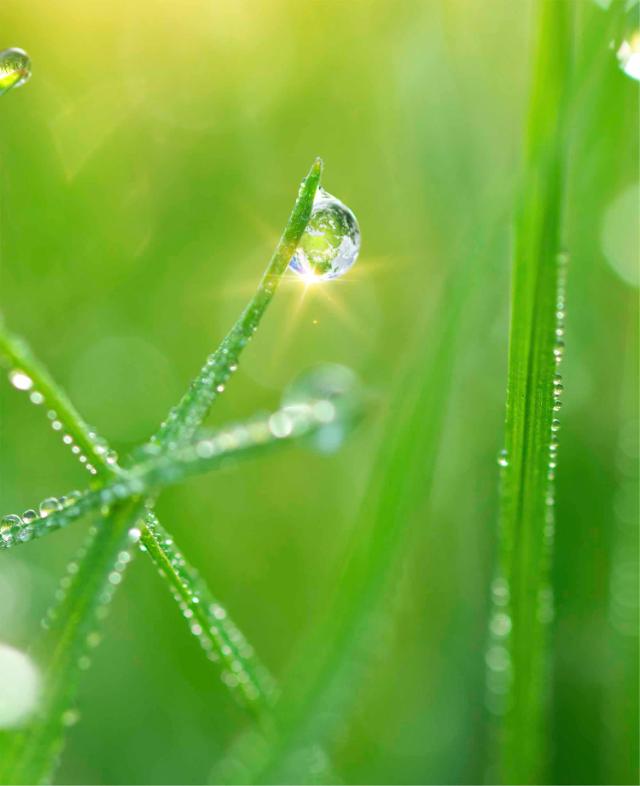
Find the perfect mixture
The Turfline® range covers every possible need for the consumer. Whether the need is for a drought and heat tolerant mixture, a mixture that thrives in shady areas or maybe a wear tolerant mixture for the family lawn – the Turfline® range has the solution.
Johnsons Lawn Seed grass seed mixtures represents excellence in lawngrass. Based on extensive consumer research, Johnsons Lawn Seed produces high-quality options tailored to the consumer’s individual requirements as well as to the changing weather patterns.
